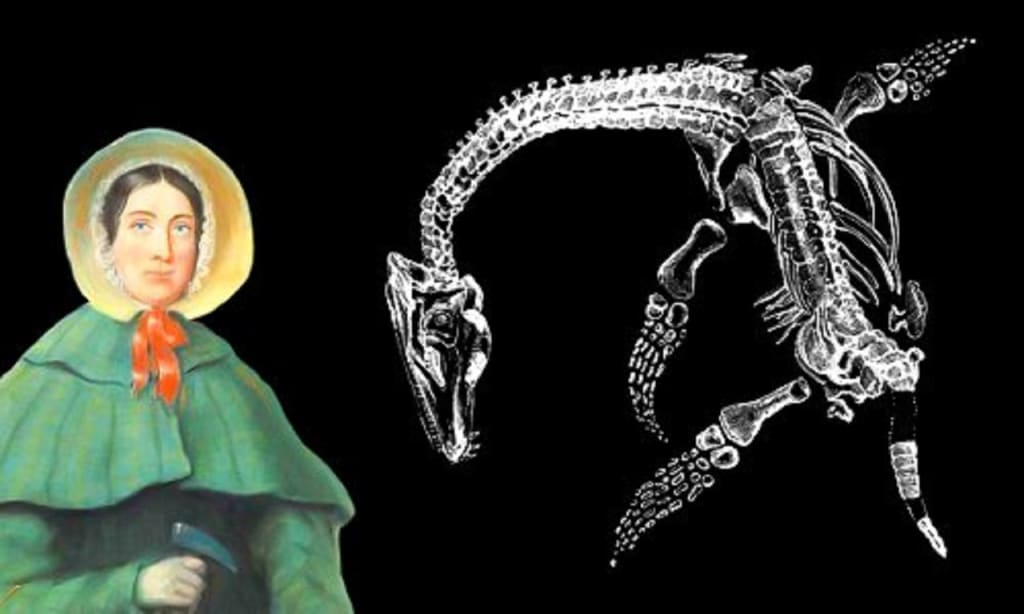The Self-Taught Fossil Hunter Who Changed Science Forever
Mary Anning: The Famous Scientists

Mary Anning was a self-taught fossil hunter who lived in England during the 19th century. Despite facing significant challenges as a woman in a male-dominated field, Anning made numerous important discoveries that helped to change the course of science forever. In this article, we will explore the life and legacy of Mary Anning, and examine her contributions to the field of paleontology.
Early Life and Education
Mary Anning was born in 1799 in Lyme Regis, a coastal town in southern England. Her father, Richard Anning, was a carpenter and cabinetmaker who supplemented his income by collecting and selling fossils. As a child, Mary would accompany her father on his fossil-collecting expeditions and quickly developed an interest in the natural world.
Unfortunately, Anning's education was limited due to her family's financial struggles. She attended a local school for only a short time before being forced to drop out to help support her family. As a result, Anning was largely self-taught, relying on her own curiosity and natural aptitude to learn about geology, anatomy, and other scientific subjects.
Fossil Discoveries
Despite her lack of formal education, Anning quickly established herself as a skilled and knowledgeable fossil hunter. In 1811, when she was just 12 years old, she discovered the skeleton of an ichthyosaur, a type of prehistoric marine reptile. This discovery drew the attention of the scientific community, and Anning's reputation as a talented fossil hunter began to grow.
Over the course of her career, Anning made numerous important discoveries, including the first complete skeleton of a plesiosaur, another prehistoric marine reptile, and a number of important dinosaur fossils. She also discovered several new species, including the ichthyosaur Temnodontosaurus platyodon, which was named in her honor.
Despite her many important discoveries, Anning faced significant challenges in her work. As a woman in a male-dominated field, she was often excluded from scientific societies and was not allowed to attend university. She also faced financial struggles, as her work was not always profitable and she was often forced to rely on the support of friends and family to make ends meet.
Legacy
Despite these challenges, Anning's contributions to the field of paleontology were groundbreaking. Her discoveries helped to change the way scientists thought about the history of life on Earth and opened up new avenues of scientific inquiry. Anning's work also helped to inspire future generations of women in science, who would build on her legacy and make even more important discoveries.
Today, Anning is remembered as a pioneer in the field of paleontology and a trailblazer for women in science. Her legacy has inspired countless scientists and researchers, and her contributions continue to be celebrated and recognized around the world.
Conclusion
Mary Anning was a remarkable woman who overcame significant challenges to become one of the most important figures in the history of science. Her discoveries changed the way we understand the history of life on Earth and helped to open up new avenues of scientific inquiry. Despite facing discrimination and financial struggles throughout her life, Anning's passion for fossil hunting and her dedication to her work never wavered. She was a true trailblazer for women in science and her legacy continues to inspire generations of scientists today.
One of the reasons that Anning was so successful as a fossil hunter was her keen observational skills. She was able to recognize the unique features of different fossils and use them to identify new species and make important discoveries. Anning was also a skilled preparator, carefully removing the fossils from the rock and cleaning them so that they could be studied and displayed.
Anning's work was not without controversy, however. Some scientists at the time were skeptical of her findings and dismissed her as an uneducated amateur. Others were more supportive but still believed that her contributions were only secondary to those of her male contemporaries. Despite this, Anning remained dedicated to her work and continued to make important discoveries throughout her life.
In addition to her scientific contributions, Anning also played an important role in the history of women's rights. As a woman working in a male-dominated field, she faced discrimination and marginalization on a daily basis. She was not allowed to join scientific societies, was excluded from academic circles, and was often dismissed or ignored by her male colleagues.
Despite these obstacles, Anning remained determined to pursue her passion for fossil hunting and to contribute to the field of paleontology in any way that she could. Her persistence and perseverance paved the way for future generations of women in science, who would continue to break down barriers and make important contributions to the field.
Today, Mary Anning is remembered as a true pioneer in the field of paleontology and a champion of women's rights. Her legacy continues to inspire and motivate scientists around the world, and her contributions to science will never be forgotten.
About the Creator
Caleb Gold
"Creative wordsmith crafting captivating stories to inspire and entertain readers on a journey of imagination."
Please Don’t forget to tap the tiny heart, comment, & subscribe for more content.






Comments (1)
Wow, 😉❤️Great Article, Thank you for sharing❗📝